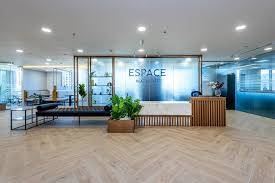Dubai's residential market continues upward trajectory in 2024
Dubai's property boom is likely to persist due to factors like population growth and increasing affordability of mortgages

Dubai: Dubai's residential property market is experiencing a super-cycle, according to a new report by Espace Real Estate. The report highlights a significant surge in sales value (up 38% YoY) for the first half of 2024, with both new developments (off-plan) and existing properties (secondary market) contributing to the growth.
The Dubai residential market continues its expansion, with 75,543 residential transactions valued at AED 191 billion during H1 2024. This represents a 36% increase in transactions year-over-year (YoY) and a 17% increase half-on-half (HoH), highlighting the ongoing growth of the Emirate.
Demand outpaces supply
While transaction volume has decreased in most tracked communities, the report attributes this to limited supply rather than weak demand. Buyer registrations are up 11%, and property listings are down 10% compared to the same period last year. This indicates a strong buyer pool exceeding the available properties.
Rising prices across the board
The property boom is reflected in rising average prices for both villas/townhouses (28% increase) and apartments (17% increase). Notably, some areas like Jumeirah Park and Lakes in the villa market, and JVC and JLT in the apartment market, witnessed even steeper price hikes.
Macro vs. micro market trends
The report emphasizes the potential disconnect between Emirate-wide data and individual community trends. While the overall market shows a strong upward trajectory, specific communities might experience different dynamics.
Balancing supply and demand
Dubai's growing population necessitates continuous development to meet the projected property demand. However, the report cautions against potential oversupply. An anticipated surge in rental supply, primarily apartments, in 2025 and 2026, could create challenges if population growth doesn't keep pace. The report suggests that future development should cater to the diverse needs of residents, second-home buyers, and investors in the tourist market.
Rental market
Mirroring the sales market, Dubai's rental market also shows positive growth. Average rents for villas/townhouses and apartments have increased by 23% and 22% respectively. New developments are particularly popular, attracting a significant number of new tenants.
Long-Term trend
John Lyons, Managing Director of Espace Real Estate, highlights a notable trend where new residents often choose to rent for a short period before transitioning to homeownership. This trend, coupled with affordable mortgages and relaxed visa regulations, fuels Dubai's long-term growth strategy.
Looking ahead
The report by Espace Real Estate paints a positive picture of Dubai's residential market. However, it emphasizes the need for a balanced approach to future development to ensure sustainable growth that caters to the evolving needs of residents, investors, and the tourism sector.